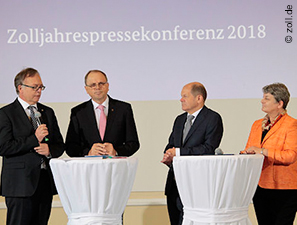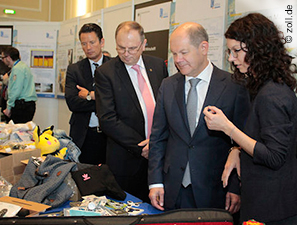German customs officials were able to seize approximately 3.3 million counterfeit products in 2017; around 300,000 less than the year before. Nevertheless, officials noted a sharp increase in the value of the confiscated items. Compared to the 2016 customs report, there was a significant increase from around 180 million euros to almost 200 million euros in 2017.
You are missing external content here. Simply click on the button to load the content of datawrapper.dwcdn.net.
While in 2016 manufacturers of games, toys and sports equipment were most affected by counterfeiting, in 2017 fake machines, vehicles and vehicle parts as well as office equipment top the list. In addition to illegal imitations of gaming and sporting goods, which ranked number two in 2017, manufacturers of pharmaceuticals as well as clothing and footwear were particularly affected by product and brand piracy.
You are missing external content here. Simply click on the button to load the content of datawrapper.dwcdn.net.
“The German customs officials do an excellent job. But they cannot stop the flood of counterfeits on their own,” stated Volker Bartels, chairman of Aktionskreis gegen Produkt- und Markenpiraterie e. V. (APM), regarding the annual report for 2017. The steadily increasing number of small postal items that are ordered via online shops in particular pose a problem for the officials.
In order to counteract the negative trend, Bartels sees responsibility not only for customs and trademark owners. “Especially online platforms, which might even benefit from the sales of counterfeit products due to their business models, need to step up,” explains the expert. “They must act more actively against counterfeit offers.” Further: “Under no circumstances should monitoring of product offers soley be the responsibility of the affected owners of the trademarks.”
Bartels’ request echos the assessment of various authorities and brand owners who currently criticize online trading platforms such as Alibaba and Amazon for trademark infringement on their sites (we reported respectively).
As in the two previous years, most of the counterfeits seized at German borders in 2017 came from the People’s Republic of China (51.3%) and its special administrative region Hong Kong (14.4%). With a rapid increase the United States (8.4%) is newly in third place, followed by Turkey (6.6%) and Singapore (4.2%).


© zoll.de




